Essential oils
Essential oils are valuable, effective medicines.
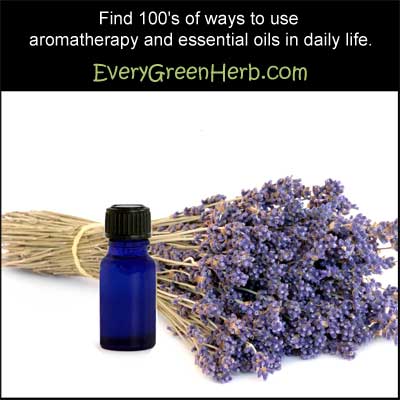
What are essential oils?
Essential oils are extracted from herbs, flowers, resins, wood fibers, and plant roots. Various techniques are used in the distillation process.
Distilling and using essential oils are an art. The oils are very powerful medicines, and sometimes one drop is all it takes to do the job.
Essential oils are used in aromatherapy to heal and protect the mind, body, and spirit. They have been around for centuries but have only recently become mainstream.
In ancient Egypt, essential oils were extracted by steeping plant material in oil and then straining through linen. Today most essential oils are extracted by steam distillation.
One of the most useful is lavender essential oil. Lavender essential oil should be in every first aid kit and medicine cabinet.
It can be used to treat everything from bug bites to headache. Also use essential oils in the bath, in beauty products, and in herbal household products.
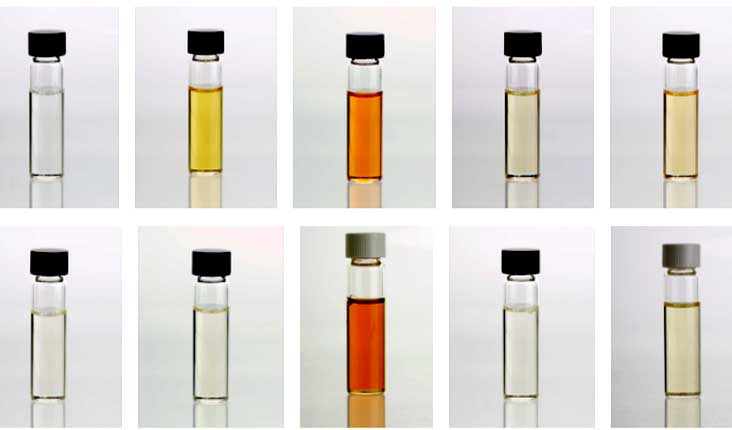
Essential oils are distilled condensations.
Essential oils are not really oils. They are distilled condensations formed by passing steam through plant material. These "essential oils" rise with the steam, are cooled, and collected. The resulting fluid is a volatile essence with molecules so small they can penetrate layers of skin.
Essential oils are inhaled or added to baths. They are also diluted with carrier oils and used in massage, ointments, creams, and perfumes.
Essential oils are potent substances.
Essential oils are a hundred times more concentrated than dried herbs. During the life of a plant, the essential oils deliver messages to regulate its functions, to protect from environmental stress, and to attract insects for pollination. These plant essences act much like hormones do in humans.
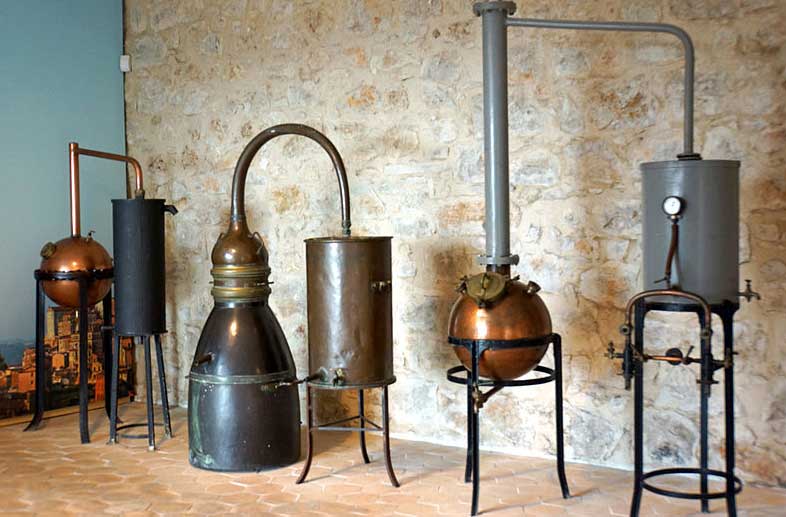
How can essential oils help heal the body?
Consider the sense of smell. Smell is the most direct of all our senses.
The olfactory cells in the nose are the only place in the human body where the brain is directly in contact with the external world. Smell doesn’t have to travel across millions of nerve cells to reach the brain. Scents go directly to the emotional center of the brain where they can begin the healing process.
Essential oils work quickly to uplift the spirit, calm the nerves, and heal our bodies.
More uses for essential oils
Studies show that essential oils are useful in the prevention and treatment of infectious disease like cholera and the flu.
Essential oils also prove useful when treating cancer, HIV, cystic fibrosis, heart conditions, the digestive tract, the lungs, food poisoning, malaria, and skin problems.
In hospital settings, orange, peppermint, or tea tree essential oils are sometimes used to dress wounds. These essential oils kill bacteria and help stop infection.
Essential oils are also used to treat patients after having surgery for pain and nausea.
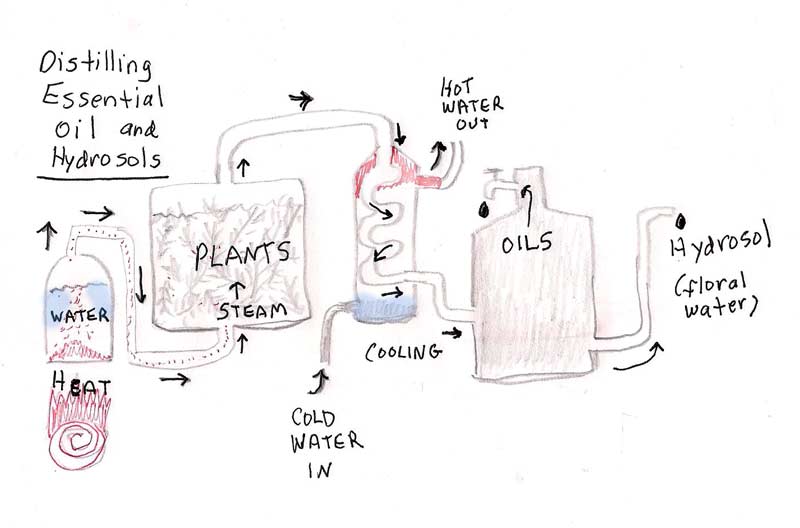
Scientific studies
Research on the effectiveness of essential oils is promising. One study shows that due to strong antibacterial properties, essential oils help heal lyme disease better than prescription antibiotics.
Essential oils are also useful when treating anxiety, depression, insomnia, low appetite, and dry mouth.
Doctors and scientists caution against using essential oil diffusers in public places and in households with babies, small children, the elderly, and pets. People react differently to different oils and unexpected results can occur.
To be safe, use essential oils in body oils, aroma sticks, and aromatherapy accessories such as necklaces that you sniff throughout the day.
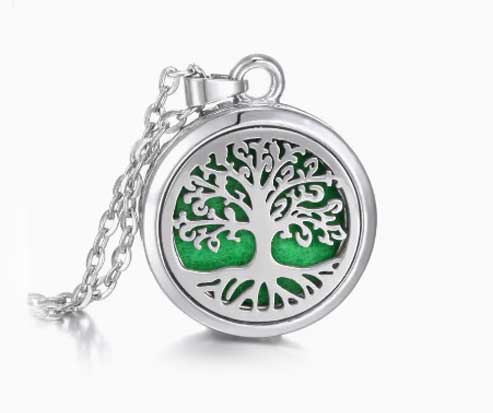
Essential oils have strong antimicrobial, antiviral, antibiotic, anti-inflammatory, antioxidant, and psychological properties. If overused, they can disrupt the endocrine glands, which is not a good thing.
Essential oils should only be used in therapeutic amounts by a qualified adult. Essential oils should only be used in small quantities, a couple of drops at a time. Do your own research and then proceed to reap the benefits of essential oils!
Always buy from reputable companies.
Tests show that the quality of essential oil varies by brand. Since the production of essential oils is not regulated, the label might not even list all of the ingredients.
Quality oils should contain the Latin name of the plant and country of origin.
Good oils are also packaged in dark-colored, glass containers. Since pure essential oils are so concentrated, the can cause plastic containers to dissolve over time which taints the oil with plastic particles. Glass helps protect quality and increases shelf time.
Avoid all "fragrance oils". They are probably made from synthetic chemicals.
Prices also give hints on quality. If you see 100% rose oil on sale for five dollars, you can bet that it is not a real essential oil. Real rose oil costs hundreds of dollars per ounce.
Blessings to you and yours!
Favorite essential oils
- Angelica
- Anise
- Basil
- Bay
- Bergamot
- Cedarwood
- Chamomile
- Cinnamon
- Clove
- Cypress
- Eucalyptus
- Fennel
- Frankincense and Myrrh
- Geranium
- Ginger
- Grapefruit
- Jasmine
- Juniper
- Lavender
- Lemon
- Lemongrass
- Neroli
- Nutmeg
- Orange
- Oregano
- Patchouli
- Peppermint
- Pine
- Rose
- Rosemary
- Sage and Clary Sage
- Sandalwood
- Tea tree
- Thyme
- Turmeric
- Ylang Ylang
*Clinical research shows a possible link between the topical use of essential oils, especially lavender and tea tree, and the onset of male gynecomastia, or the development of breast tissue, in prepubescent boys.
Dilute essential oils before use. Do not use in the early stages of pregnancy or on babies. If using essential oils around pets, make sure they have a way to "escape" the scent. An open window or screened area will work. The same goes for the elderly and disabled.
Use only a few drops of essential oils at a time. Blend only two or three different oils together at one time. Do not take essential oils internally.
Never use essential oils near the eyes. Do not use near open flames. Some essential oils have flammable properties. Use in moderation and always monitor results closely. Before using essential oils, always consult with a healthcare professional especially if pregnant, nursing, or taking other medicines.
Sources:
https://www.ncbi.nlm.nih.gov/pmc/articles/PMC4090492/
https://www.niehs.nih.gov/health/topics/agents/essential-oils/index.cfm
https://pubmed.ncbi.nlm.nih.gov/32607090/
Blessings to you and yours!
Thanks so much for reading my blog. Jan.

*Note - the information on this website has not been evaluated by the Food and Drug Administration.
© 2005-2024 website design and content by Janice Boling